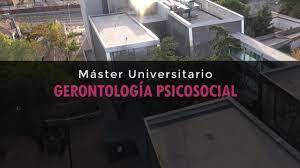University Master's Degree in Psychosocial Gerontology (Open Enrolment)
Formación
The Master's Degree in Psychosocial Gerontology, taught jointly by the Universidad a Distancia de Madrid and the Matia Institute, offers a great opportunity to develop the necessary professional skills to address the challenge of longevity in complex social contexts. It provides in-depth knowledge in the fields of active ageing, the implementation of models of Integrated Care and Person-Centred Care, new models of care centred on the home, new accommodation for elderly people in need of care, geriatric and gerontological assessment, good treatment, wellbeing and care for elderly people with dementia.
It is essential training for those responsible for planning and evaluating public policies in the field of ageing and for professionals dedicated to the direction, management or intervention in centres and services for the elderly. The practical contents provided by the Master's degree are of particular interest for the design, management and professional intervention in the promotion of autonomy and care for dependency in residential centres, lifelong housing, day centres, home support services, geriatric care, community services and volunteering, among others.

In a context of accelerated population ageing, globalisation, feminisation, urbanisation and technological revolution, the Master's degree offers multidisciplinary training for professionals who work in clinical, care, community, research and public policy contexts, from the integrated and interdisciplinary vision offered by gerontological science.
The Master's Degree in Psychosocial Gerontology is an academic offer that responds to new social and professional challenges aimed at promoting and defending the rights of the elderly, seeking their social participation and encouraging intergenerational exchange to take advantage of the resources and socio-cultural wealth that the different stages of the life cycle can offer.

